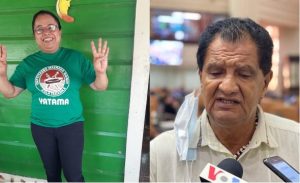By: Molly Osinoff
Impunity Watch News Staff Writer
GREECE – On February 13, 2023, the European Court of Human Rights (ECHR) held that Greece violated Article 3 (lack of investigation) and of Article 8 (right to respect for private and family life) of the European Convention of Human Rights in the case of X. v. Greece.
 |
The plaintiff in X v. Greece is a British national, who alleges she was raped by a hotel bartender while she was vacationing in Greece with her mother in 2019. The plaintiff, who was eighteen at the time of the attack, lodged a criminal complaint the same day. The plaintiff claimed she was given no information about the required medical examinations or judicial procedure, authorities did not arrange any separation between her and the accused, and she had to sign documents in Greek without any translation.
Throughout the criminal proceedings, the plaintiff claims she was not provided with any information and could not obtain information on the case from the British embassy. When the plaintiff emailed the prosecutor to request records and updates, she was told she was not a civil party to the case because she did not testify before the court or appoint a lawyer to represent her. The plaintiff claimed that the Greek government failed to conduct an effective investigation into her allegations of rape, breached their duty to provide effective legal protection, and failed to protect her as a victim of gender-based violence.
Without expressing an opinion as to the accused’s guilt, the ECHR found that the Greek investigative and judicial authorities’ failure to adequately respond to the applicant’s allegations violated the State’s duties under the European Convention of Human Rights. Specifically, the Court found that Greece violated Articles 3 and 8 Convention, which require states to ensure that individuals within their jurisdiction are not subjected to ill-treatment and that protection of an individual’s physical integrity may extend to questions relating to the effectiveness of a criminal investigation, respectively.
For further information, please see:
ECHR – Judgment for X. v. Greece – 13 Feb. 2024.
European Institute for Gender Equality – Gender Equality Index 2020 Greece.
REUTERS – Greece to Toughen Laws on Sex Crimes After Wave of Abuse Allegations – 25 Feb. 2021.



